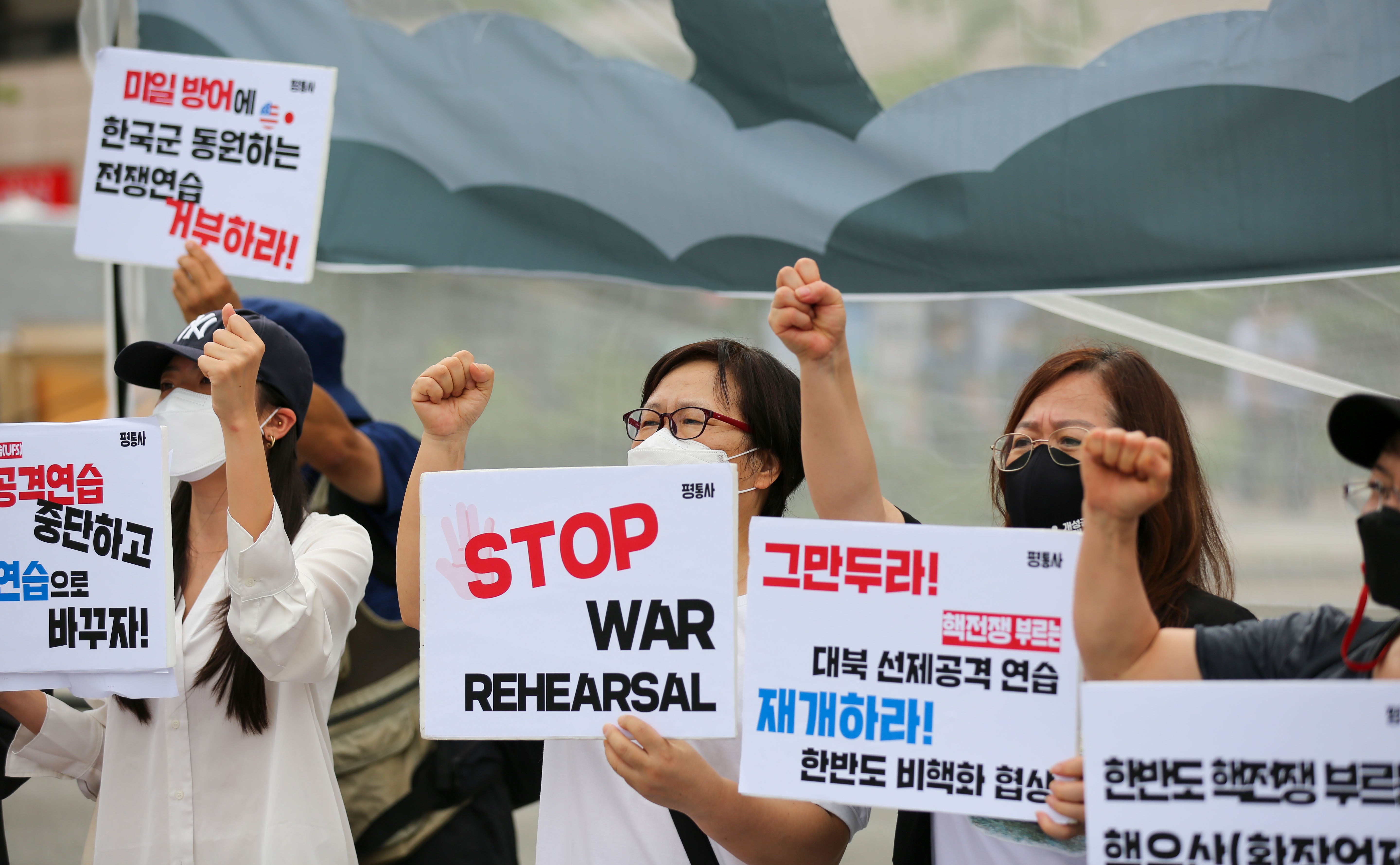US and South Korea begin biggest joint military drills in years
Joint military drill scheduled to end on 1 September

The US and South Korea on Monday began their largest joint military drill in years in a show of their preparedness amid heightened tensions with North Korea.
The Ulchi Freedom Shield annual exercises will involve aircraft, warships, tanks and potentially thousands of troops before concluding on 1 September.
South Korean president Yoon Suk-yeol, who took office in May, vowed to “normalise” the combined exercises and boost deterrence against the North as it continues to threaten to upgrade its nuclear capabilities.
The South had separately launched the four-day Ulchi civil defence drills on Monday, officials said, in an effort to boost government readiness. With the changing pattern of war, which now involves cyber safety and supply chain, military and civil exercises will help the country be prepared, Mr Yoon said.
The civil defence exercises will reportedly include simulating joint attacks, front-line reinforcements of arms and fuel and removals of weapons of mass destruction.
The troops will also undergo drone attack training along with new developments in warfare used during Russia's invasion of Ukraine.
Without revealing the number of troops participating in joint defence exercises, the South has portrayed it as a message of strength, days after Seoul’s defence ministry said the Ulchi Freedom Shield “normalises” large-scale training and field exercises between the allies.
This year marks the largest joint drill between the countries since 2017 after being scaled back because of Covid and the South’s efforts to renew talks with North Korea.

The South Korean defence ministry claimed the allies would stage 11 field training programmes involving thousands of soldiers this summer.
Pyongyang, however, called the joint drills a rehearsal for invasion and fired two cruise missiles from the west coast last week when Washington and Seoul kicked off their preliminary training for the exercises.
The drills commenced a week after Kim Yo-jong, the powerful sister of North Korean leader Kim Jong-un, dismissed the South’s proposal of economic benefits in exchange for denuclearisation steps.
She described the South Korean president’s proposal as “foolish” and “audacious”, stressing the North had no intentions to give away the arsenal used by her brother as a guarantee for survival.
She had also criticised Mr Yoon for continuing military exercises with the US and monitoring the North’s missile activity.
The North Korean leader had earlier warned of “deadly” retaliation against South Korea after a recent Covid outbreak, which Pyongyang claimed was caused by leaflets and other objects floated by southern activists.
North Korea has conducted a record number of missile tests this year, involving over 30 ballistic launches, including the country’s first demonstrations of intercontinental ballistic missiles in nearly five years.
The rapid missile tests have prompted concerns over the North conducting its first nuclear test in five years.






Join our commenting forum
Join thought-provoking conversations, follow other Independent readers and see their replies
Comments